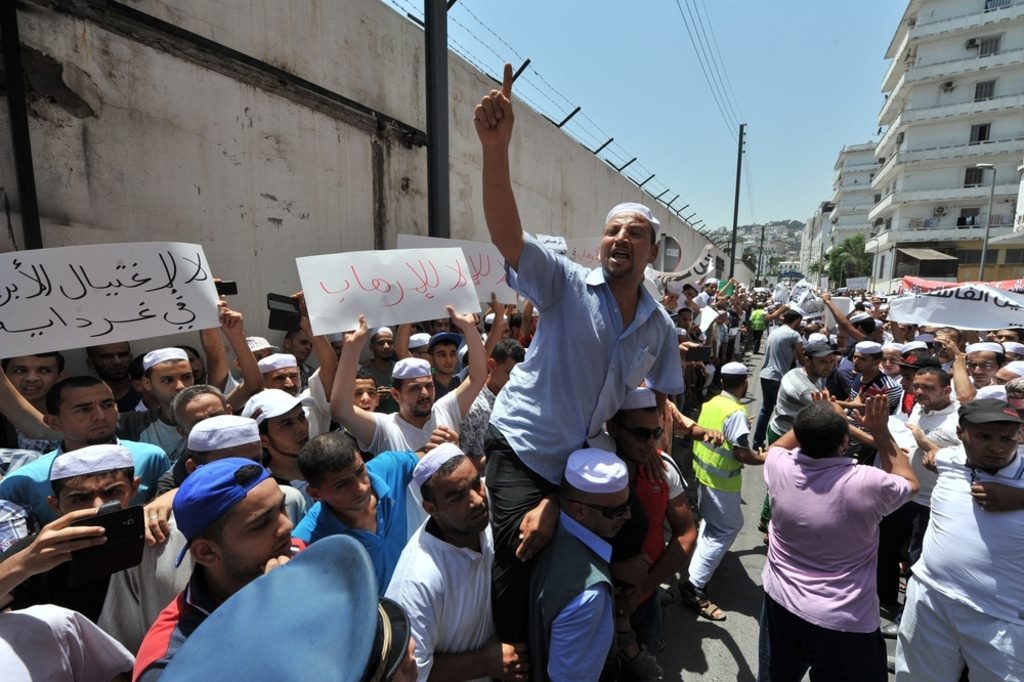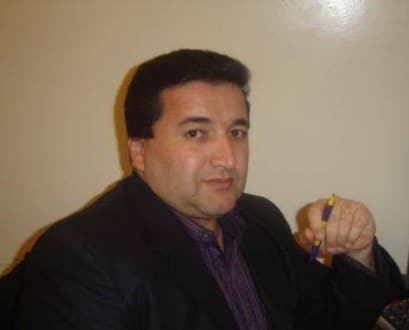Human rights in Algeria are frequently violated and the government seems deaf to the repeated calls to remedy the situation.

Five years after a 19-year-old state of emergency was lifted and long-time president Abdelaziz Bouteflika promised reform, individual rights and the freedom of workers and trade unions in Algeria continue to be abused.
Human rights violations fall into five main areas: freedom of association, peaceful assembly and protest, freedom of speech, women’s rights, minority rights and accountability for past crimes.
Freedom of association, assembly and peaceful protest
The latest Human Rights Watch Report states that freedom of association, assembly and peaceful protest are severely restricted, with frequent arrests and prosecutions of political and trade union activists.
In 2013, for example, the government suppressed demonstrations and arbitrarily arrested unionists. In the following years, the government used unfair dismissal, imprisonment and other means to intimidate members of independent trade unions.
In May 2016, the EuroMed Rights Briefing reported that trade unions in Algeria are constantly harassed and cannot act freely. The situation is complicated by the constant repression of independent unionists, as well as by abusive administrative practices that do not respect the international convention of the International Labour Organisation (ILO), including Convention No. 87 on the freedom of association and the right to organize, signed by Algeria.
Pursuant to this, a number of Algerian civil society and independent trade unions made frequent visits to Brussels and other European capitals to report their government’s harassment and violation of the unionists’ human rights.
Furthermore, the Interior Ministry continues to block the registration of several human rights and other organizations, impeding their ability to operate legally and exposing them to the risk of dissolution.
Further restrictions involve associations that are legally registered. Hence, Law 12-06, enacted in 2012, obliges all associations to re-register and obtain a registration receipt from the Interior Ministry before they can operate legally.
The law also gives authorities wide discretionary powers to refuse to register any association whose activities they deem contrary to public order, public morality and the provisions of existing laws and regulations.
Freedom of speech
Freedom of speech violations are no less frequent. For example, the Committee to Protect Journalists reported that Mahdi bin Issa and Riyadh Hartouf, both senior staff at KBC, a privately owned television station, were arrested on 24 June 2016.
Hartouf’s charge related to his satirical talk shows ’Ki Ki Hna Nass’ (‘We Are Like Everyone Else’) and ‘Nass el Sath’ (‘People of the Roof’), which deal with political, economic and social issues, including allegations of corruption against President Bouteflika and other senior officials. The two journalists face up to ten years in prison.
On 6 July 2016, a number of organizations signed a petition urging the authorities to end their increased attacks on critical journalists and media outlets and to ensure the conformity of media legislation with Algeria’s international human rights obligations and constitutional guarantees.

On 4 October 2016, the general prosecutor in al-Bayadh tribunal accused Hassan Bouras, a freelance journalist who has criticized the government, of ‘insulting state institutions’ and ‘attacks intended to overthrow the regime’.
He has been in detention since. Bouras was previously targeted for alleging corruption in al-Bayadh.
Women’s rights
A draft law was adopted in March 2015 to criminalize physical violence against a spouse and sexual harassment in public spaces. However, in the face of opposition from Islamist and conservative parties, the law has yet to be debated and voted on. There are no other specific laws that protect individuals from domestic violence.
According to a national survey, 10.9 per cent of women said they had been subjected to forced sexual intercourse by their partners. Marital rape is not explicitly recognized as a crime under Algerian law. Indeed, the law allows men who rape girls under the age of 18 to escape prosecution by marrying their victim.
Minority rights
Algerian authorities have arrested and prosecuted several political and minority rights activists on terrorism charges despite weak evidence. On 9 July 2015, police arrested Kameleddine Fekhar and 24 others.
Fekhar, an Amazigh (Berber) activist and advocate of autonomy for the northern Sahara Ghardaia region, had previously accused the government of “complicity in crimes against humanity by Sunni Arabs against the Amazigh”.
The authorities charged all 25 with participating in a terrorist act and inciting hatred during violent confrontations on 7 July between members of the Amazigh and Arab communities in the Ghardaia. The accused could face the death penalty.
Accountability for past crimes
Many of the perpetrators of torture, enforced disappearances, unlawful killings and other abuses during the internal conflict of the 1990s continue to evade prosecution under the 1999 Law on Peace and National Reconciliation.
Furthermore, the government has failed to investigate thousands of human rights abuses from that period despite pressure from the families of the disappeared.
Since 2011, the Algerian government has only permitted one United Nations human rights mechanism, the special rapporteur on the rights to education, to visit the country.
Other requests, including from the UN Working Groups on Enforced or Involuntary Disappearances, are still pending.
In sum, human rights in Algeria are frequently violated and the government seems deaf to the repeated calls to remedy the situation.


